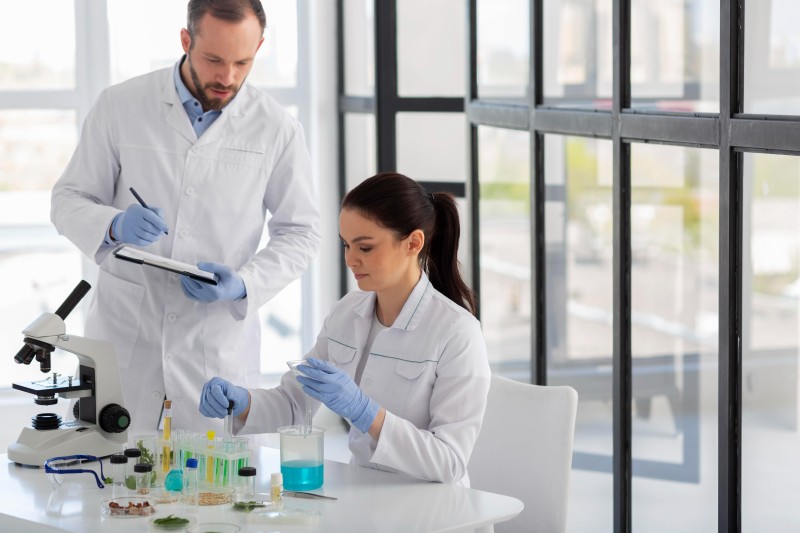In today’s fast-paced medical world, laboratory services play a vital role in identifying, diagnosing, and preventing health conditions. With the advancement of medical technology and the growing need for timely diagnosis, diagnostic laboratory services have evolved to provide accurate, efficient, and patient-centered solutions. From routine blood tests to complex molecular diagnostics, health services laboratories are at the forefront of modern healthcare, ensuring doctors and patients have the essential information required for effective treatment.
The Importance of Laboratory Services in Healthcare
Laboratory testing services form the backbone of medical decision-making. In fact, nearly 70% of medical decisions are influenced by results from laboratory services. These services enable physicians to confirm diagnoses, monitor treatment effectiveness, and detect health issues at an early stage.
Without access to modern testing laboratories services, the healthcare system would struggle to provide timely and accurate treatments. By identifying conditions early, laboratory testing prevents complications, improves recovery outcomes, and enhances overall patient safety.
Types of Diagnostic Laboratory Services
Modern diagnostic laboratory services encompass a wide range of tests and procedures designed to address various health needs. These include:
1. Clinical Chemistry Testing
-
- Analyzes blood and bodily fluids to evaluate organ function and metabolic conditions.
- Common tests include glucose, cholesterol, and liver enzyme measurements.
2. Hematology Testing
-
- Focuses on blood disorders and diseases such as anemia, leukemia, and clotting abnormalities.
3. Microbiology and Infectious Disease Testing
-
- Identifies bacteria, viruses, fungi, and parasites that cause infections.
- Essential for prescribing the right antibiotics and treatments.
4. Pathology and Histology
-
- Examines tissues and cells for cancer and other abnormalities.
5. Immunology and Serology
-
- Tests for autoimmune diseases and measures immune response against infections.
6. Genetic and Molecular Diagnostics
-
- Provides insights into inherited diseases and guides personalized medicine.
These specialized laboratory testing services ensure that healthcare providers can deliver precise and tailored treatment to patients.
Modern Diagnostic Solutions
Technology has transformed testing laboratories services into advanced healthcare partners. Modern laboratories integrate artificial intelligence, digital pathology, and automated analyzers to deliver faster and more reliable results. Cloud-based data management ensures that patients and physicians can access reports securely and efficiently.
Additionally, many health services laboratories now offer home collection facilities, reducing the need for patients to travel and making healthcare more accessible. Such innovations not only improve convenience but also enhance accuracy and timeliness in reporting.
Role of Testing Laboratories in Preventive Healthcare
Preventive care is increasingly becoming a priority worldwide. Regular screenings and checkups through laboratory testing services can detect chronic conditions like diabetes, cardiovascular diseases, and thyroid imbalances at an early stage. These proactive measures reduce long-term healthcare costs and improve the quality of life.
For instance, a simple blood sugar test performed at testing laboratories services can help prevent severe complications of diabetes. Similarly, lipid profile tests identify risks of heart disease, allowing lifestyle changes and early interventions.
Patient-Centric Approach in Laboratory Services
Today’s laboratory services are not limited to just testing samples; they focus on patient comfort, transparency, and communication. Many labs provide detailed consultations with pathologists, mobile applications for test bookings, and even doorstep sample collection. This patient-centric model is reshaping the way people access and trust laboratory testing services.
The Future of Laboratory Services
The future of diagnostic laboratory services lies in precision medicine and data-driven healthcare. Genetic testing, personalized treatment plans, and AI-assisted diagnostics will become standard features of health services laboratories. Furthermore, global integration of laboratories services will allow seamless sharing of medical data, advancing international medical research and collaboration.
With growing emphasis on accessibility, affordability, and speed, testing laboratories services will continue to evolve as indispensable healthcare providers.
Frequently Asked Questions (FAQs)
Q1: What are diagnostic laboratory services?
Diagnostic laboratory services refer to medical testing performed on patient samples (blood, urine, tissues, etc.) to detect, diagnose, and monitor health conditions.
Q2: Why are laboratory testing services important?
They provide critical information for doctors to make accurate diagnoses, monitor treatment effectiveness, and identify potential health risks early.
Q3: How do health services laboratories support preventive care?
They offer routine screenings and diagnostic tests that help detect chronic diseases like diabetes, thyroid disorders, and heart conditions before complications arise.
Q4: Can I access laboratory services from home?
Yes. Many modern laboratories offer home sample collection, online booking, and digital reports, making diagnostic testing more convenient.
Q5: What makes modern diagnostic solutions different from traditional testing laboratories?
Modern solutions use advanced technologies like AI, automation, and genetic testing to deliver faster, more accurate, and personalized results compared to older methods.
Accurate results you can trust! For reliable Laboratory Services, visit our website https://scclittleelm.com/our-services/laboratory-services/ today or call us at (469) 200-5974 for quick assistance.

